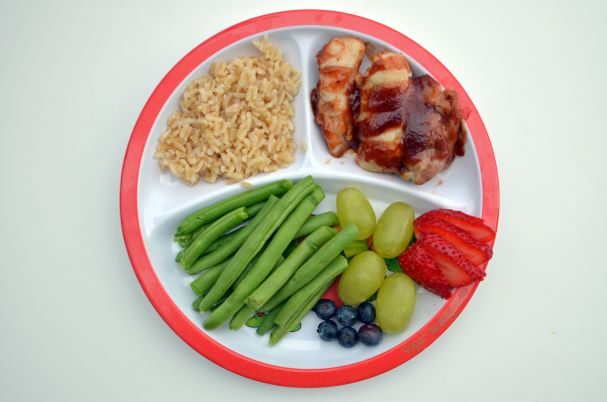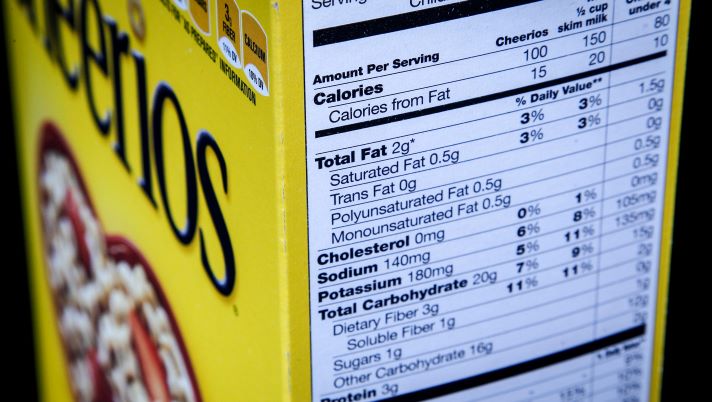The guidance and links on this page cover diet and nutrition support for children over the age of 5.
A healthy, balanced diet should be based on the principles of the Eatwell Guide, the UK's healthy eating model. The Guide shows the proportions in which different types of foods are need to have a well-balanced and healthy diet. From the age of 5, children should be eating the same foods as the rest of the family, in the proportions shown on the Eatwell Guide. The Eatwell Guide applies to most people regardless of weight, dietary restrictions/ preferences or ethnic origin. However there are adapted versions of the Eatwell Guide for different cultures.
The Eatwell Guide shows the different food groups we should aim to be eating throughout the day. It gives a rough guide to how many portions we should be eating. You do not need to include all the food groups in every meal but it is important that you try and encourage your child to eat food from each of the groups throughout the day. Even if your child isn't eating a huge variety from each of the sections it's a positive that they are still managing to get a balanced diet.

Understanding portion sizes
As parents, it's essential to understand the significance of appropriate portion sizes in feeding your children.

Understanding sugar in your child's diet
Sugar is a natural part of many foods, but knowing where it comes from can help you make healthier choices for your family.

Understanding food labels
Checking food labels is a simple way to help you make healthier choices for your family. Many labels now use a traffic light system.

Diet and oral health
Regularly consuming acidic foods and drinks, like citrus fruits, squash, and fizzy drinks, can cause tooth wear.

Supporting your child through fussy eating
Fussy eating is a common phase many children go through. Here are some tips to help make mealtimes easier and to encourage healthy eating habits

Making a healthy packed lunch
A nutritious packed lunch helps your child stay focused and energised throughout the school day. It provides the fuel they need for learning, playing, and growing.
Specialist Eating Support
If you're concerned that your child may be underweight, not receiving adequate nutrition, or possibly showing signs of an eating disorder, we encourage you to book an appointment with your child's GP.
For concerns specifically related to eating and mental health, including eating disorders, you can also reach out to CAMHS (Child and Adolescent Mental Health Services) or BEAT (the UK's eating disorder charity) for additional support and resources.

